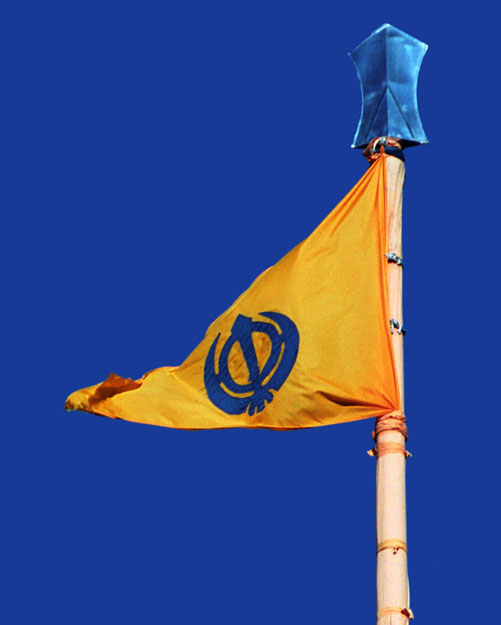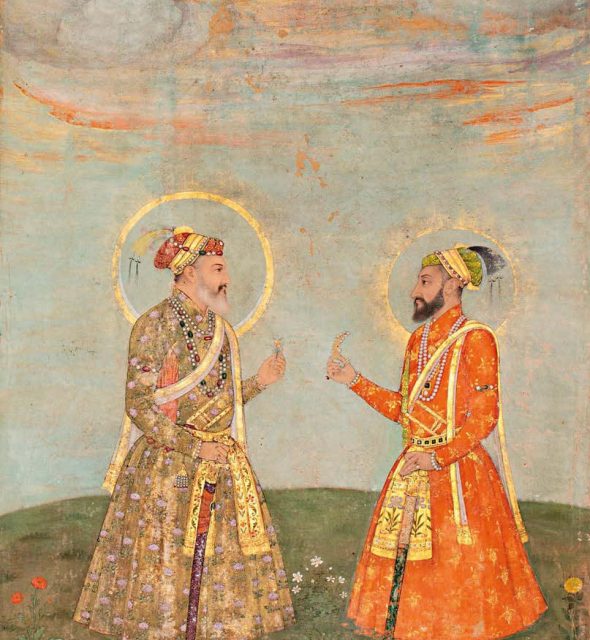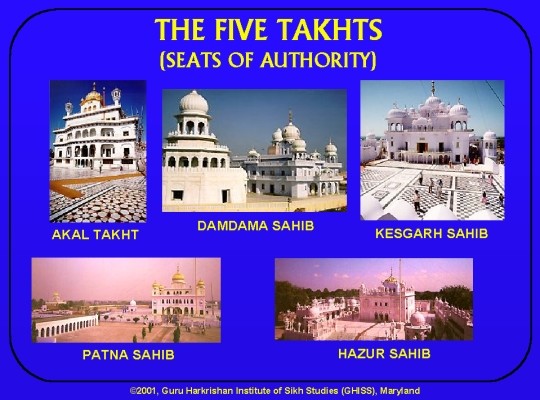
NISHAN SAHIB is the name for the tall Sikh flag which marks all gurudwaras and other religious premises of the Sikhs. Nishdn is a Persian word with multiple meanings, one of these being a flag or standard. Sahib, an Arabic word with the applied meaning of lord or master, is here used as an honorific. Thus Nishan Sahib in the Sikh tradition means the holy flag or exalted ensign. A synonymous term is Jhanda Sahib (jhandd also meaning a flag or banner). The Sikh pennant, made out of saffron coloured, occasionally out of blue coloured, mainly in the case of Nihangs, cloth is triangular in shape, normally each of the two equal sides being double of the shorter one.

\'ABDULLA BHAI\', Abdul according to some Sikh chroniclers, was a Muslim minstrel who recited heroic balladry at Sikh congregations in the time of Guru Hargobind (1595-1644). Abdul was born in the village of Sursingh, now in Amritsar district of the Punjab. He first came to Amritsar in 1606 at the time of the installation ceremony for Guru Hargobind at the Akal Takht. According to Gurbilas Chhevin Patshahi, he and his companion, Bhai Nattha, sang the stanza on the occasion: The Throne everlasting Has by the Holy Guru\'s presence become haloed, Indescribable is its splendour, How may I sing its glory! Seeing the Guru, Both the sun and the moon were shamed.
- 1
- 2










